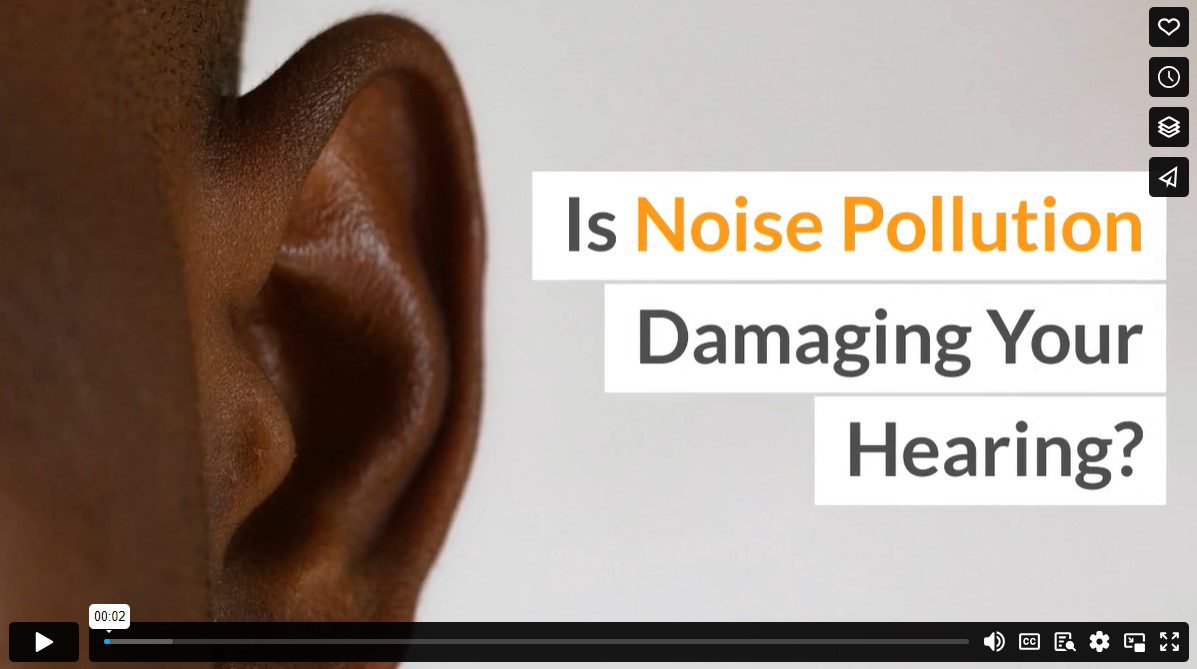“By Barry Keate
Barry Keate, has lived with tinnitus over 40 years and has published 150+ research articles on numerous aspects of tinnitus. He is an expert on the condition and a well-known advocate for those with tinnitus.”
 (Ketut Subiyanto/Pexels)
(Ketut Subiyanto/Pexels)
People with good hearing rarely understand how hearing loss could affect their daily lives. Conversing with loved ones gives us connection. Hearing a car behind you as you walk along the road, smoke alarms, or a dog growl as you approach all protect you from harm or death. Much of our entertainment comes from TV, music, and interaction with others in noisy environments.
While you may be aware that sudden explosive sounds damage your hearing, you may not know that steady softer sounds can also create lasting damage. Prolonged noise at a level that can induce stress and damage residents’ hearing is called noise pollution. Like many other forms of pollution, the effects are gradual and go unnoticed until the damage is done.
How Noise Pollution Damages Your Hearing
Our brains work to protect us. If we took in all the information in our environment all at once, we wouldn’t be able to function. So our brains weed out what it considers non-essential information and draw our attention to details we need for the next daily task or to keep us safe. Once our brains realize a noise is constant and nonthreatening, it refocuses our mind on more immediate matters.
Our ears still pick up the vibrations from sound waves, however. Sudden loud, or steady moderate sounds can damage the tiny nerves that send information to the brain. They may also send corrupted signals, which people experience as tinnitus, or sounds you hear that others can’t because there is no external source.
What Are Some Sources Of Noise Pollution?
Here are some of the sources of noise pollution you may have yet to consider.
Transportation Hubs
Those who live near train stations, airports, and freeways are usually hyper-aware of the associated noise at first but grow accustomed to it over time. They may even claim they no longer hear planes taking off or trains passing by their home, though the sound can be loud.
Kids And Critters
Whether they belong to you or your neighbors, dogs that constantly bark and kids scream during play (especially in a large group like a school play yard) can be loud and damaging in the long run.
Construction Noise
Jackhammers, saws, nail guns, hammers, grinders, and other tools can make a racket. We may notice it less during the day, with different sounds like traffic competing for our attention. Anyone living next to a construction site can tell you the constant sound can be wearing, especially if the crew gets started before their alarm goes off.
Sirens
Those who live near firehouses, police stations, and hospitals deal with sirens regularly. The sound of ambulances and helicopters transporting patients can overwhelm the ears.
Events
Parades, concerts, game days, county fairs, rodeos, fireworks, and more all contribute to the noise in a neighborhood, even if you don’t attend the event.
Apartment Living
Anyone who has lived in an apartment or stayed the night at a motel will tell you the walls can be thin. Music, parties, TV, arguments, home improvement projects, fussy babies–it doesn’t matter what your neighbor is up to; they’re sharing it with you.
What Steps Can Reduce The Impact Of Noise Pollution?
You can take some steps to minimize noise pollution in your home.
- Outer Defenses– Build a tall fence or hedge, or plant a line of trees close together along your property line. These barriers can disrupt the sound wave before it gets to you and insulate you from the noise.
- Seal Your Home– Unsealed windows, single-pane windows, and cracked walls offer less resistance to sound waves. Use sealant or caulking to plug cracks or holes and upgrade windows for a quieter home.
- Install Insulation– Insulation not only helps with temperature changes but can also weaken sound as it tries to penetrate your home. Most modern construction includes insulation in the walls for energy efficiency. If it doesn’t, or if you have an uninsulated attic or roof, you can add insulation to lower your energy bill and increase the peace in your home.
- Inside The Home– You can also protect your hearing from common noisemakers in the home.
- Install energy-efficient appliances as they tend to operate more quietly.
- If appliances vibrate loudly, install foam or a vibration-resistant platform.
- Wear ear protection when using power tools in the home.
- Keep the TV and music at moderate volume levels.
What If The Noise Is Unavoidable?
Whether you have a job that uses heavy machinery, are going to your kid’s football game, or live near an airport, noise can be unavoidable. Giving your ears a break to recover afterward will help stave off hearing loss for as long as possible.
Find a quiet place and noise-canceling headphones for a little mini retreat. If you don’t like silence, you can find YouTube videos with gentle white noise, like rain or a babbling brook, to help you relax. Keep the volume low and block out the world for a few minutes.
What Do I Do If I Get A Ringing In My Ears Or Hearing Loss?
Tinnitus has many causes, and treating the underlying cause can possibly reverse the damage. If, however, hearing loss and tinnitus are caused by noise pollution, trauma, or other irreversible damage, then you can manage the symptoms for tinnitus relief. Here are some helpful tips:
- Supplements for tinnitus, including high-grade ginkgo biloba, have proven effective.
- Sometimes nutritional deficiencies cause or worsen tinnitus. Ask your medical team about vitamins to help tinnitus.
- Certain foods can worsen symptoms.
Prevention Is Key
You can’t always control the noise level in your neighborhood, but there are steps you can take to protect your home and hearing. Prevention is the best option when it comes to hearing loss.
Infographic
Discover the underestimated impact of hearing loss on daily life. Recognize the harm not only in sudden loud noises but also in continuous exposure to softer sounds, known as noise pollution. This infographic provides practical steps for outer defenses, sealing homes, installing insulation, protecting hearing inside the house, managing unavoidable noise, and addressing ear ringing. Prioritize prevention to safeguard your home and hearing, taking essential measures for a quieter and healthier auditory environment.

Video

